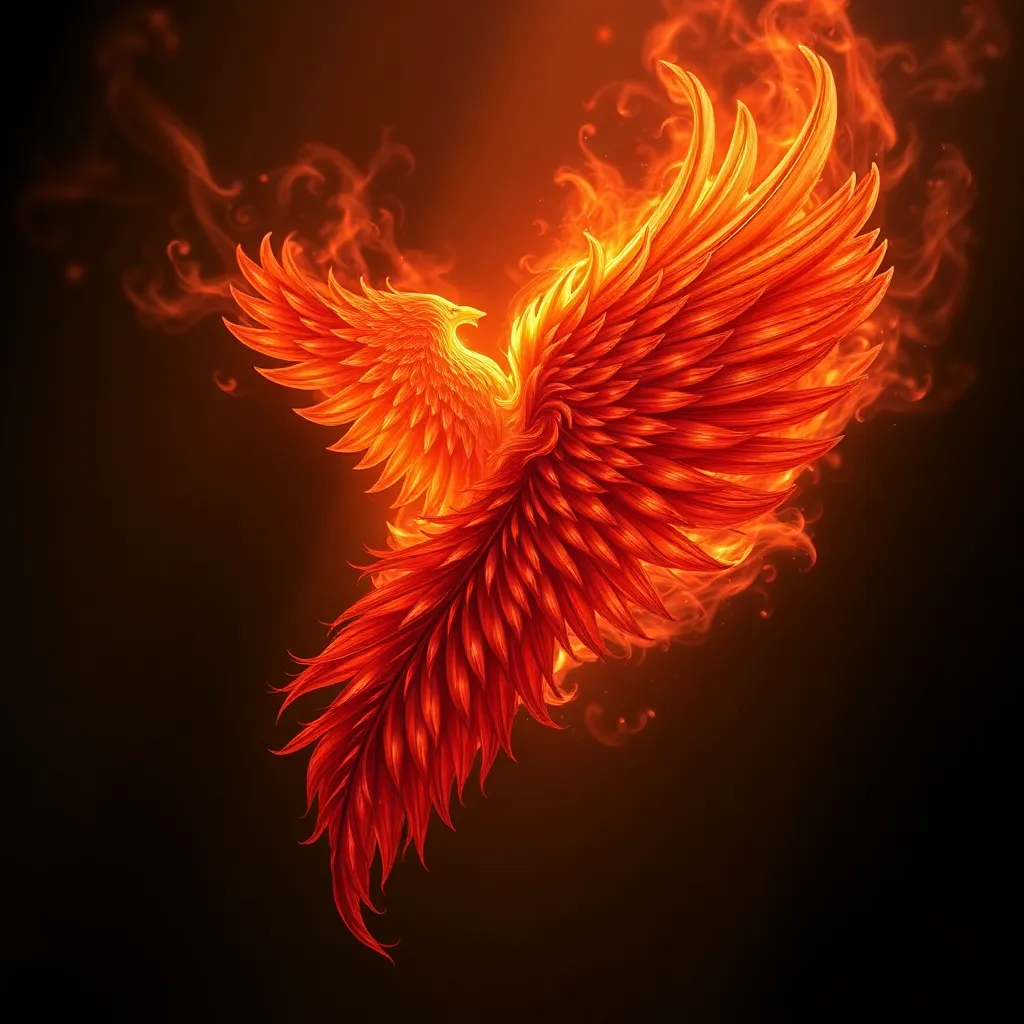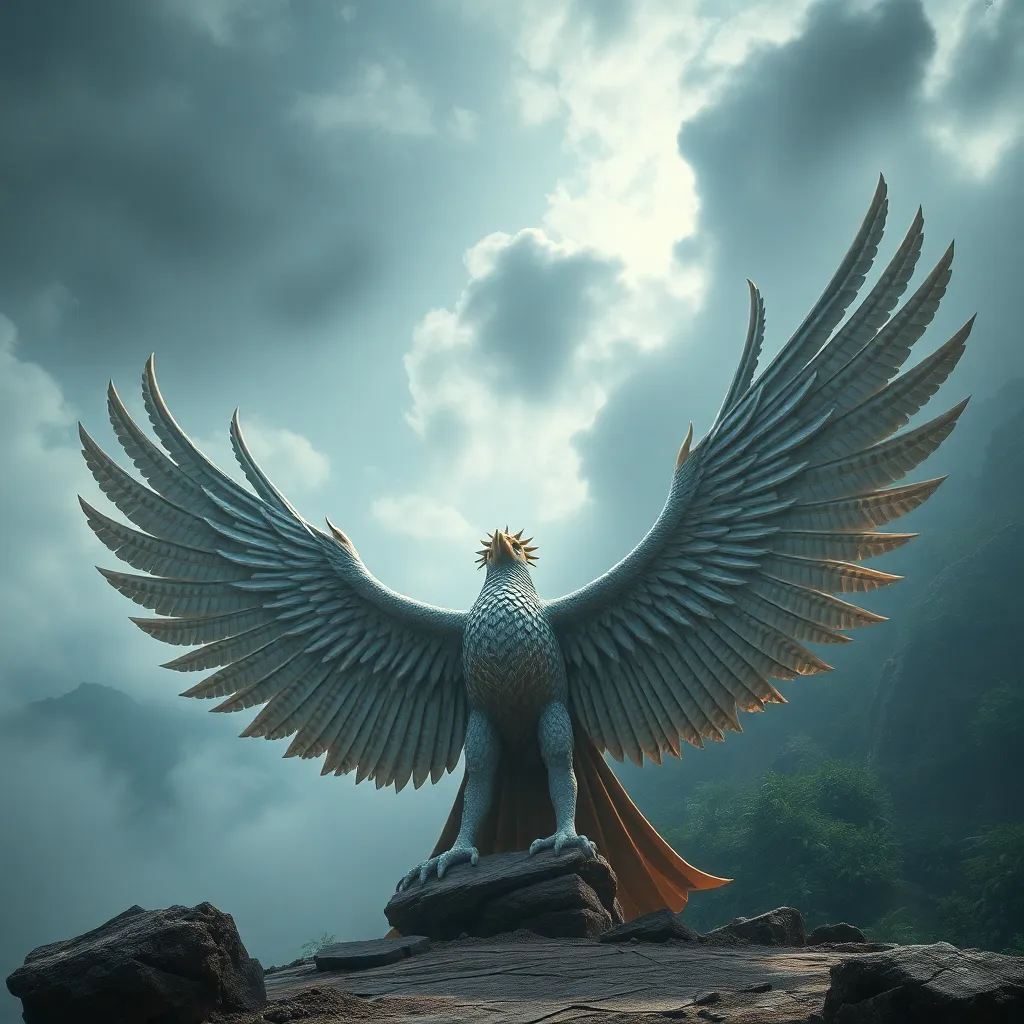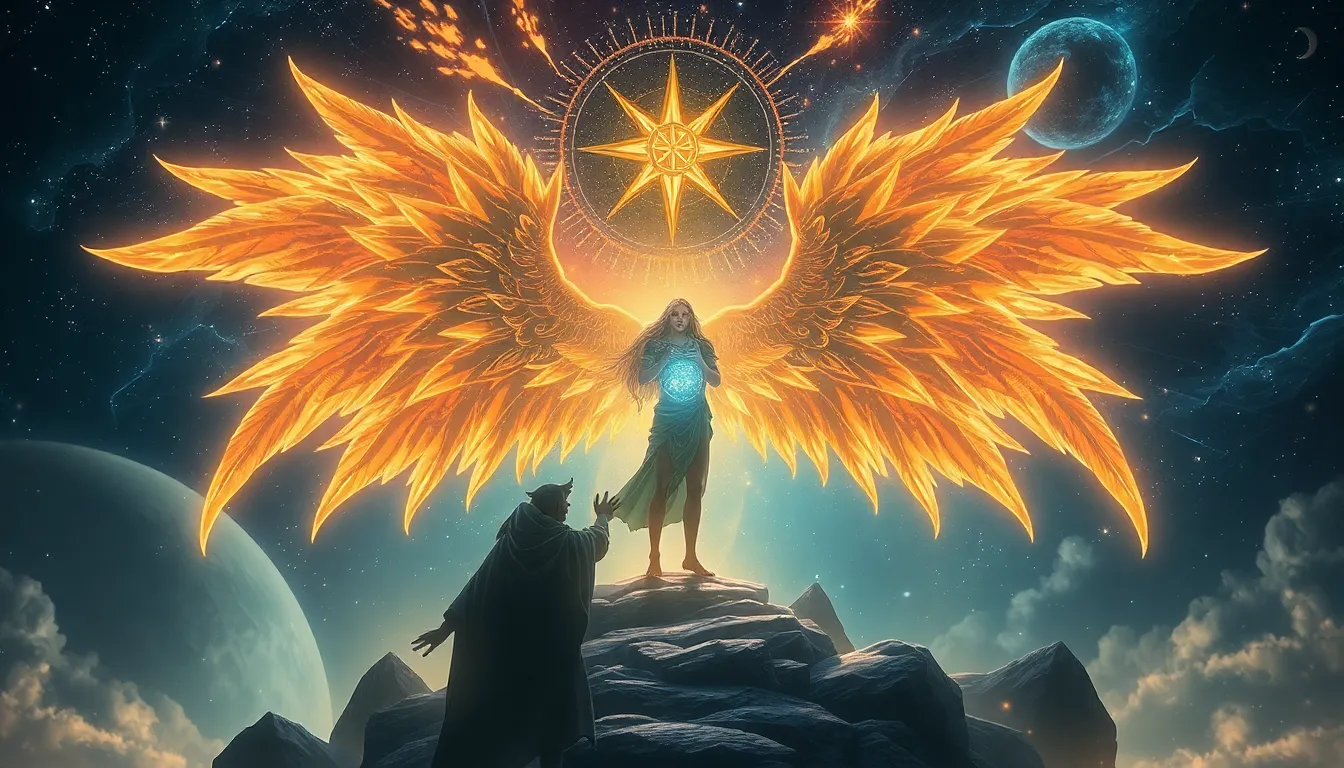The Firebird’s Feather: Symbol of Hope and Rebirth in Slavic Mythology
I. Introduction
Slavic mythology is a rich tapestry of tales, symbols, and beliefs that have shaped the cultural heritage of Eastern Europe. It serves as a window into the spiritual and natural world of the Slavic people, reflecting their values, fears, and hopes. Among the myriad of mythical beings in this tradition, the Firebird stands out as a central figure, embodying themes of beauty, danger, and the interplay of light and darkness.
The Firebird, often depicted as a radiant creature with glowing feathers, has captivated the imagination of many. Its story is woven into various folktales and legends, where it often appears as both a blessing and a curse. This article explores how the Firebird’s feather represents hope and rebirth, symbolizing the human aspiration for renewal and the cyclical nature of life.
II. Origins of the Firebird in Slavic Folklore
The origins of the Firebird can be traced back to ancient Slavic beliefs, where it was often associated with the sun, light, and the heavens. The historical context of its myth reveals a creature that has evolved over time, reflecting the values and struggles of the people. In many tales, the Firebird is portrayed as a magical creature that brings both fortune and misfortune to those who encounter it.
Throughout different Slavic cultures, the portrayal of the Firebird varies significantly:
- In Russian folklore, it is often seen as a beautiful and elusive creature that must be captured.
- Ukrainian tales may depict the Firebird more as a benevolent guide.
- In Polish folklore, it can symbolize the balance between light and darkness.
This diversity connects to ancient Slavic beliefs in nature and the cosmos, where the Firebird serves as a representation of natural forces and the cycle of life and death.
III. The Firebird’s Feather: A Symbol of Hope
The Firebird’s feather is described as radiant and magical, possessing the ability to heal and grant wishes. Its beauty captures the essence of aspiration and the desire for something greater. In many tales, the feather becomes a pivotal element that signifies transformation and the pursuit of dreams.
In stories where the hero encounters the Firebird, the feather often serves as a tool for change:
- It may grant the hero the strength to overcome obstacles.
- It can symbolize the light at the end of the tunnel during dark times.
The feather embodies hope, particularly in challenging times, reminding individuals that even in adversity, there exists the possibility for change and renewal.
IV. Rebirth and Renewal: The Firebird’s Cycle
Central to the Firebird’s mythology is the narrative of death and rebirth. The life cycle of the Firebird is often depicted in a way that mirrors the natural world, where death leads to renewal. This cycle is rich with symbolic interpretations:
- The Firebird’s life is interwoven with the changing seasons, representing renewal in spring after the harshness of winter.
- Its disappearance and reappearance symbolize the eternal cycle of life, death, and rebirth.
This connection to seasonal cycles also reflects agricultural rebirth, where the Firebird’s story resonates with the rhythms of planting and harvest, underscoring a profound relationship between mythology and the natural world.
V. The Firebird in Folktales and Legends
Numerous folktales feature the Firebird as a central character, most notably in the story of “The Firebird” and “Prince Ivan.” In these tales, the Firebird often serves as a catalyst for the hero’s journey, leading them to confront challenges and grow as individuals.
Key elements include:
- The hero’s quest to capture the Firebird, symbolizing the pursuit of dreams and aspirations.
- Character development as the hero learns valuable lessons about courage, perseverance, and humility.
- The Firebird’s role as a mentor or guide, providing wisdom and assistance at crucial moments.
These stories not only entertain but also impart moral lessons that resonate with audiences, reinforcing the importance of hope and resilience.
VI. The Firebird’s Influence on Art and Culture
The Firebird has transcended folklore to influence various forms of art and culture. Its representation can be found in visual arts, literature, and music:
- In visual arts, artists have depicted the Firebird in vibrant colors, capturing its mythical beauty and essence.
- Literature has embraced the Firebird as a symbol of hope, often using it as a metaphor for personal growth and transformation.
- Igor Stravinsky’s “Firebird Suite” is a landmark piece of music that brings the Firebird’s story to life through orchestral composition, showcasing its emotional depth and cultural significance.
Modern adaptations continue to reinterpret the Firebird myth, demonstrating its enduring appeal and relevance in contemporary society.
VII. The Firebird as a Universal Symbol
The Firebird shares similarities with mythical creatures from other cultures, such as the Phoenix in Greek mythology. Both symbols embody themes of resurrection, hope, and the possibility of renewal:
- The Phoenix rises from its ashes, much like the Firebird’s cycle of death and rebirth.
- Both creatures serve as reminders of resilience in the face of adversity.
This universality allows the Firebird to resonate in contemporary discussions of hope and recovery, serving as a beacon for those navigating life’s challenges.
VIII. Conclusion
In conclusion, the Firebird holds a significant place in Slavic mythology, representing hope and the cycles of life. Its feather, a powerful symbol of aspiration and rebirth, reflects the enduring human experience of striving for renewal in difficult times. As we explore the legacy of the Firebird, we are reminded of the importance of hope and the potential for transformation in our own lives.
The Firebird’s story encourages us to embrace change and to seek the light, even when faced with darkness. Its enduring legacy serves as a testament to the human spirit’s capacity for resilience and renewal.




